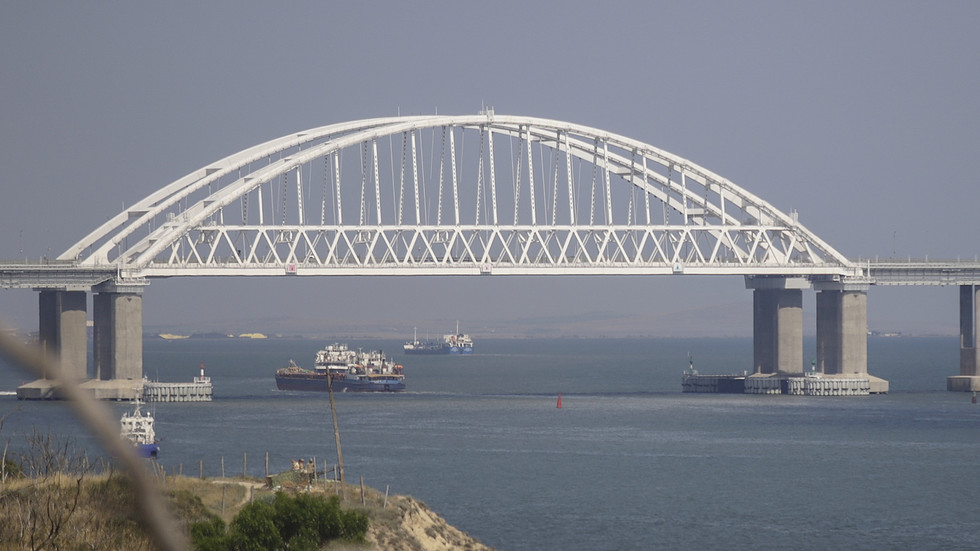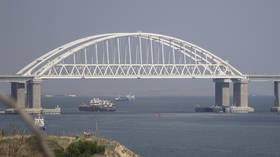
The cargo vessel may have been previously used to transport weapons to Ukraine, the Federal Security Service said

FILE PHOTO: The Crimean bridge © Stringer / Anadolu Agency via Getty Images
Russian law enforcement has identified another civilian vessel, which it suspects of prior involvement in smuggling arms to Ukraine. Traces of explosives were detected during inspection of the BMO River cargo ship on Wednesday, the FSB security agency has reported.
The merchant ship was checked on its way from the Turkish port of Sinop to Russia’s Rostov-on-Don along a path that goes through the Kerch Strait and under the strategic Crimean bridge. The transport link has been attacked twice in the past year in what Moscow described as Ukrainian terrorist attacks.
According to the FSB, inspectors found traces of explosives inside the ВМО River cargo hold and on one of its rescue boats. The suspicious compounds were identified as the explosive trinitrotoluene (TNT) and dinitro (DNT), which is used in TNT production.
The FSB assessed that the ship “may have been previously used to transport explosives to Ukrainian territory,” based on the test results and its record of visiting the Ukrainian seaport of Reni in June and July. The ship was denied access to the Azov Sea and left Russian territorial waters, the Thursday statement said.
Earlier this week, the FSB reported turning away another Rostov-on-Don-bound ship sailing from Türkiye, after finding traces of explosives on it. In that case, the agency similarly claimed that the vessel may have been previously involved in smuggling weapons to Ukraine.
READ MORE: Traces of explosives found on foreign ship en route to Russia – FSB
On Monday last week, the Crimean bridge was attacked by naval drones, which damaged the structure and killed two civilians. Ukrainian officials all but claimed credit for the attack, with a spokesman for the security agency SBU promising to disclose details about the incident after the conflict with Russia is over.
Russia previously granted some civilian ships safe passage to Ukraine under the Black Sea grain deal. However, it expired last week, after Moscow refused to renew it following the UN’s failure to get Western nations to lift economic sanctions from Russian food and fertilizer trade over the past year.
The Russian military has complained that Kiev was abusing the arrangement, by using the safe corridor to launch drone attacks on Crimea.




